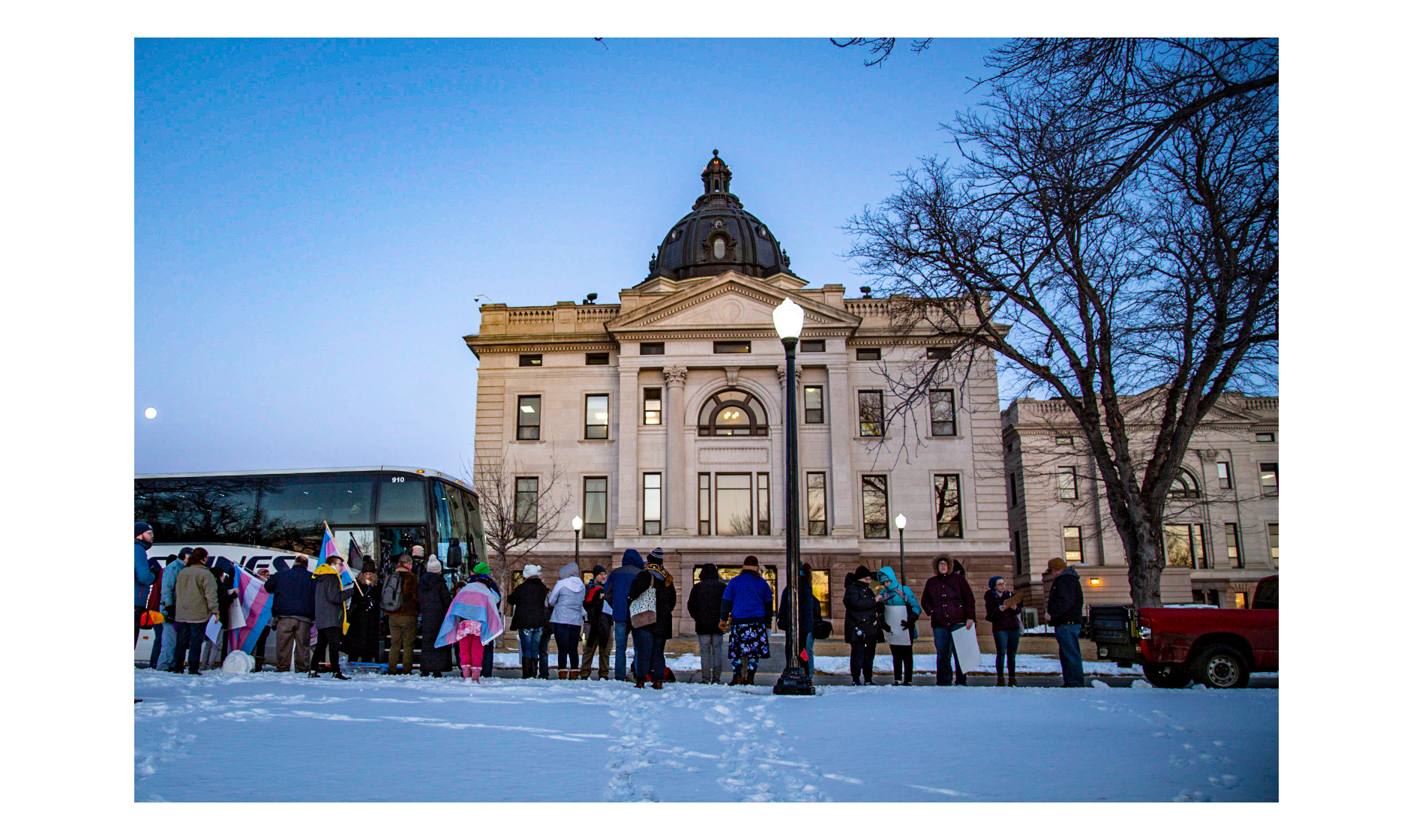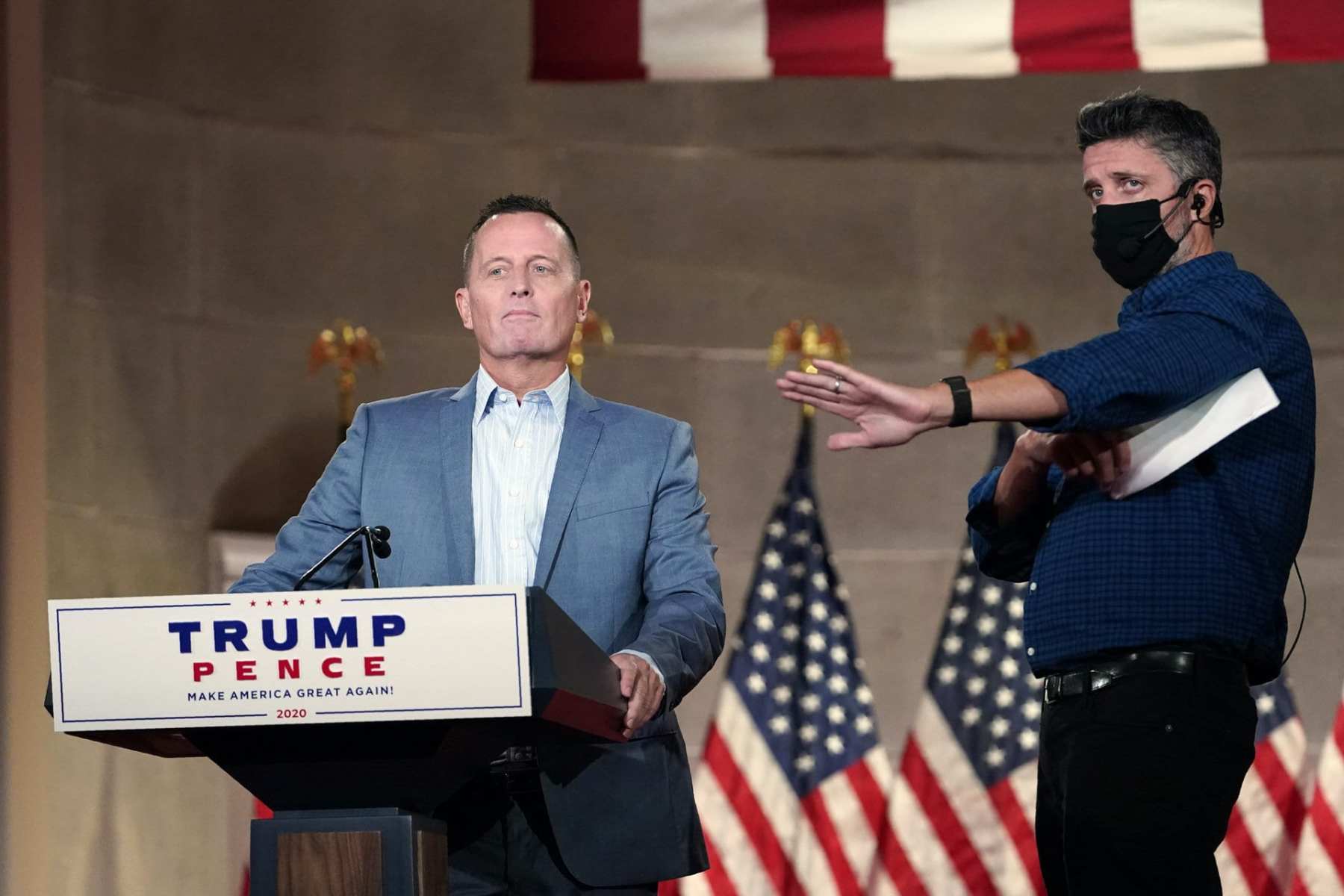Nancy Hainline is a woman without a party. She grew up Republican, just like her dad, who owned his own business in Arkansas. When she moved to Missouri to work as a lab technician at the Smith Glynn Callaway clinic in Springfield, she still thought of the Republican party as the party for small business owners. She still holds many conservative views.
“I don’t know that Trump has done a terrible job,” she said. “He’s done some things that have needed to be done.”
But now, the 2020 election presents Hainline with a painful choice.
“Because of his attitude toward the LGBT community, I actually am being pushed into the democratic lane,” Hainline, who voted for Hillary Clinton in 2016, said. She doesn’t know that she will vote for Joe Biden this year. “This has been a very hard election coming up.”
Hainline’s adult child, Damon Hainline, is gay and gender nonbinary. Damon has fought from coast-to-coast securing rights for LGBTQ+ people as a field organizer. It’s something that Hainline, who says she had previously been “strongly anti-gay,” thinks God put her child on earth to do.
“If you love your child, you have to accept their viewpoints,” she said. “God just kind of took me up by the collar, shook me until my teeth rattled and made me realize that it wasn’t a choice.”
During his time in office, Trump has unleashed a barrage of homophobic and transphobic policies. And at the Republican National Convention this week, LGBTQ+ voters were paid scant attention. The RNC pushed the message of an inclusive party under Trump — Black speakers rejected the notion that the president is racist; women claimed that a Trump presidency had catapulted gender equality; and Tuesday’s programming featured a naturalization ceremony with Trump, despite his efforts to halt immigration.
On Wednesday night, Richard Grenell, former acting director of national intelligence and an out gay man, addressed the RNC. To the surprise of many, Grenell made no mention of LGBTQ+ issues.
Grenell’s address, announced just hours before it aired, was promptly slammed by LGBTQ+ organizations as a last-ditch effort by the RNC to gloss over Trump’s policies. Earlier this month, Grenell released a video claiming that Trump was the most “pro-gay president in American history.”
“This is gaslighting, and we won’t fall for it,” Vivian Topping, director of advocacy and civic engagement at the Equality Federation told The 19th in an email. “This administration has been violently dangerous for LGBTQ people.”
God just kind of took me up by the collar, shook me until my teeth rattled and made me realize that it wasn’t a choice.
Nancy Hainline
The lack of queer content in the convention signals that the party still sees gay rights as a hazard. That silence might be a gamble when it comes to drawing in Republican voters like Hainline, who aren’t LGBTQ+ but love someone who is. Research shows that people who know LGBTQ+ people are far likelier to support queer rights. According to the Pew Research Center, 87 percent of Americans know someone who is gay, and 30 percent know a transgender person.
According to the Williams Institute at the UCLA School of Law, nearly 9 million LGBTQ+ adults are registered to vote. They are over three times more likely to identify as Democrat (50 percent) than Republican (15 percent). Although Republicans historically opposed LGBTQ+ rights like same-sex marriage for longer than their Democratic counterparts, Trump vowed in 2016 to be a friend to LGBTQ+ Americans. But LGBTQ+ media organization GLAAD claims the Trump administration has launched 172 attacks on the community during his presidency. Those range from barring transgender people from serving openly in the military to arguing that LGBTQ+ people should not be protected from employment discrimination at the Supreme Court.
“Almost immediately when Trump came into office, he began dismantling the hard-fought protections we won over the last eight years,” Topping said.
Advocates say it’s far too late for Trump to save face with LGBTQ+ voters.
“He unequivocally does not speak for the vast majority of LGBTQ Americans and allies who see through the Trump administration’s lies about its abysmal LGBTQ record,” said GLAAD President and CEO Sarah Kate Ellis in a media statement.
But whether or not Trump truly wants to paint himself as pro-LGBTQ+ is debatable. Grenell’s appearance coincided with a string of anti-LGBTQ+ speakers Wednesday night. Rep. Dan Crenshaw has been criticized for mocking nonbinary Americans. Retired football player Burgess Owens has previously called LGBTQ+ organizations “anti-God leftists against anything that the Christian faith is all about.” North Carolina congressional candidate Madison Cawthorn has said that LGBTQ+ people had gone too far in pursuing rights after achieving marriage equality.
The LGBTQ+ movement was “two people who wanted to be able to get married” Cawthorn said on the Charlie Kirk show last month. “But now it’s saying that we need to be able to have gender reassignment surgery for 12-year-olds. They never stopped at a line. They always go further.”
With rare exceptions, transgender minors do not get gender-confirmation surgery. In some cases, doctors can prescribe puberty blockers, which temporarily pause puberty until a child reaches adulthood and can decide if they want to medically transition.

On Wednesday evening, the RNC subtly took aim at such children when Cissie Graham Lynch, granddaughter of the late pastor Billy Graham, claimed, “Democrats pressured schools to allow boys to compete in girls sports and use girls locker rooms.”
Graham’s comments, suggesting that transgender girls are actually boys, did not go unnoticed.
“Cissie Graham Lynch stoked baseless fears about transgender people and the bathrooms they use,” Buzzfeed News wrote.
“What is particularly shameful is the targeting of some of the most vulnerable in our community: transgender kids,” Human Rights Campaign President Alphonso David said in a statement.
The choice then to have Grenell, a gay man, sing Trump’s praises felt like mixed messaging to many. And the larger party message seems similarly scattershot. On Tuesday, the Huffington Post reported that the party had launched anti-gay attacks on out Texas congressional candidate Gina Ortiz Jones. Later that same day, the National Republican Campaign Committee removed language stating that “Jones and her female partner lived and worked near Washington, D.C., not Texas” because “her orientation has nothing to do with her being a Washington, D.C., carpetbagger.”
Polls show that even among Republicans, anti-LGBTQ+ rhetoric is a risky political strategy, even on transgender issues. Pew Research Center reports among moderate and more liberal Republicans, 59 percent support marriage equality, while 36 percent of conservative Republicans support it.
Not all voters, however, are even weighing LGBTQ+ issues in voting. Craig Markhardt of Sioux Falls, South Dakota, voted for Trump in 2016. Today, he isn’t sure what box he’ll check in November. People in his life have asked him to reflect on who Trump is as a person.
“Donald Trump before his presidency was accused of filing for bankruptcy several times, having misappropriate [sic] conversations or comments about women,” Markhardt said. “He’s accused of sometimes not paying his subcontractors on projects, which I totally agree that those are not things that are not good for anybody.”
Markhardt, however, has concerns about Biden and Kamala Harris. He deeply cares about safety, he says. When he votes, he votes with that in mind, among other things.
“One of the things that I’m most concerned about is there seems to be a growing number of individuals that believe that the law is unnecessary,” he said.
LGBTQ+ issues have not come up as make or break for him either way, he said. “Because those individuals are in place to govern for all of us, Not for themselves, not for a specific group.”
Hainline, on the other hand, is going to have a harder time, regardless of Grenell’s recent statements. His appearance at the convention does little to assuage her concerns about Trump’s actions over the past three years.
“I think probably the party has forced him to make some concessions,” she said. “I don’t think he has changed.”





